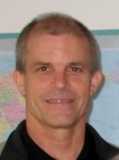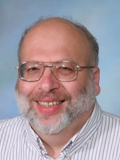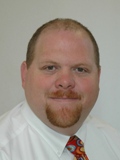|
Dr. Farris chairs, moderates at national
conference
Dr. Jerry Farris, Environmental Biology
Distinguished Professor, chaired and moderated a conference session
on Environmental and Energy Research and Education in Washington, D.C., earlier this spring. This year's
University-Federal Dialogue on Environmental and Energy Research and
Education featured 30 senior leaders from 12 federal agencies.
These leaders engaged in discussions with almost 150 faculty and
senior administrators on the research and funding priorities of the
Obama administration and the effects those research and funding
priorities might have on higher education. The conference was
sponsored by the National Council for Science and the Environment
and also includes ASU in its
Council of
Environmental Deans and Directors.
Washington, D.C., earlier this spring. This year's
University-Federal Dialogue on Environmental and Energy Research and
Education featured 30 senior leaders from 12 federal agencies.
These leaders engaged in discussions with almost 150 faculty and
senior administrators on the research and funding priorities of the
Obama administration and the effects those research and funding
priorities might have on higher education. The conference was
sponsored by the National Council for Science and the Environment
and also includes ASU in its
Council of
Environmental Deans and Directors.
Dr. Salinger attends family and victim advocacy
training
Dr. Lawrence Salinger, Sociology, and assistant department
chair,
recently attended Family and Victim Advocacy 101 training at the
National Children’s Advocacy
Center in
 Huntsville, Ala. The training is designed for Family or Victim Advocates
who work with children who are victims of crime and/or the child’s
non-offending caregivers. Historically, the criminal justice system
was designed for adults, and can be confusing and frightening for
children. Family and Victim Advocates are uniquely positioned to
provide information and support to children and families, who often
have a host of concerns and needs during the legal process. The
training focused on the knowledge, attitudes, and skills
needed to successfully implement a Family and/or Victim Advocacy
program. Topics covered in the training included dynamics of
non-offending caregivers, building community acceptance, program
description and operation, integrating programs with existent
services, working with multidisciplinary investigative teams,
rapport building and bonding with clients, implementing support
groups for caregivers, accessing community services, and tools and
techniques for intervening with caregivers.
Huntsville, Ala. The training is designed for Family or Victim Advocates
who work with children who are victims of crime and/or the child’s
non-offending caregivers. Historically, the criminal justice system
was designed for adults, and can be confusing and frightening for
children. Family and Victim Advocates are uniquely positioned to
provide information and support to children and families, who often
have a host of concerns and needs during the legal process. The
training focused on the knowledge, attitudes, and skills
needed to successfully implement a Family and/or Victim Advocacy
program. Topics covered in the training included dynamics of
non-offending caregivers, building community acceptance, program
description and operation, integrating programs with existent
services, working with multidisciplinary investigative teams,
rapport building and bonding with clients, implementing support
groups for caregivers, accessing community services, and tools and
techniques for intervening with caregivers.
Department of Teacher Education professors publish
Dr. Natalie Johnson-Leslie, Teacher Education, and Dr. Dixie K. Keyes,
Teacher Education, published
articles in the Journal of the European Teachers Education Network (JETEN).
Johnson-Leslie’s article, "Panwapa’s Island: Using
technology to globalize early learners," features the
exploration of a multi-media educational program in a global
village. Early childhood educators examined "Panwapa’s Island" for
use in diversity awareness. Keyes’ article, "Reflecting and
generating new understandings with Synectics," features the history
of Synectics, a model of teaching, along with student writing and
conceptualizations based on the creative thought generated in the
process. Also spotlighted is a Synectics brainstorming session from
the 2008 European Teachers Education Network (ETEN) Conference in
Liverpool, England.
Dr. Mike Hall participates in AP Calculus Reading
Dr. Mike Hall, Mathematics, was selected as a reader in the
annual reading and scoring of the College Board’s Advanced Placement
(AP) examinations in Calculus this June. The
AP readers are among the finest high school and college educators in
the U.S., Canada, and abroad. Each year the AP program, sponsored by
the College Board, gives more than one million high school students
an opportunity to take rigorous college-level courses and
examinations. Based on exam performances, students can receive
credit and/or advanced placement when they enter college. More than
2.7 million examinations from 37 AP courses were evaluated by over
10,000 AP readers from universities and high schools. The AP reading
is a unique forum in which academic dialogue between secondary
school and college educators is fostered and strongly encouraged. The
AP readers are among the finest high school and college educators in
the U.S., Canada, and abroad. Each year the AP program, sponsored by
the College Board, gives more than one million high school students
an opportunity to take rigorous college-level courses and
examinations. Based on exam performances, students can receive
credit and/or advanced placement when they enter college. More than
2.7 million examinations from 37 AP courses were evaluated by over
10,000 AP readers from universities and high schools. The AP reading
is a unique forum in which academic dialogue between secondary
school and college educators is fostered and strongly encouraged.
Back to the top |

